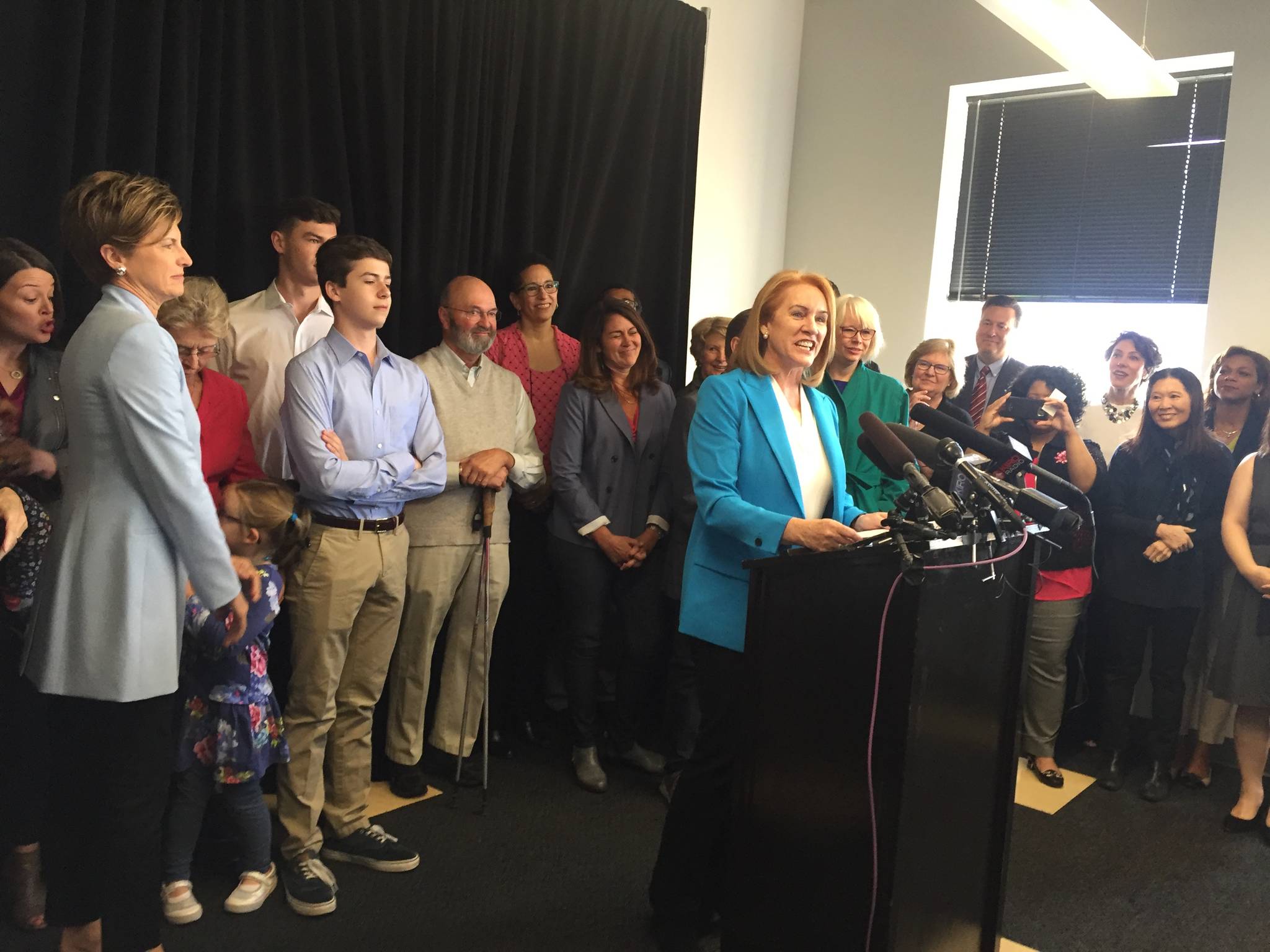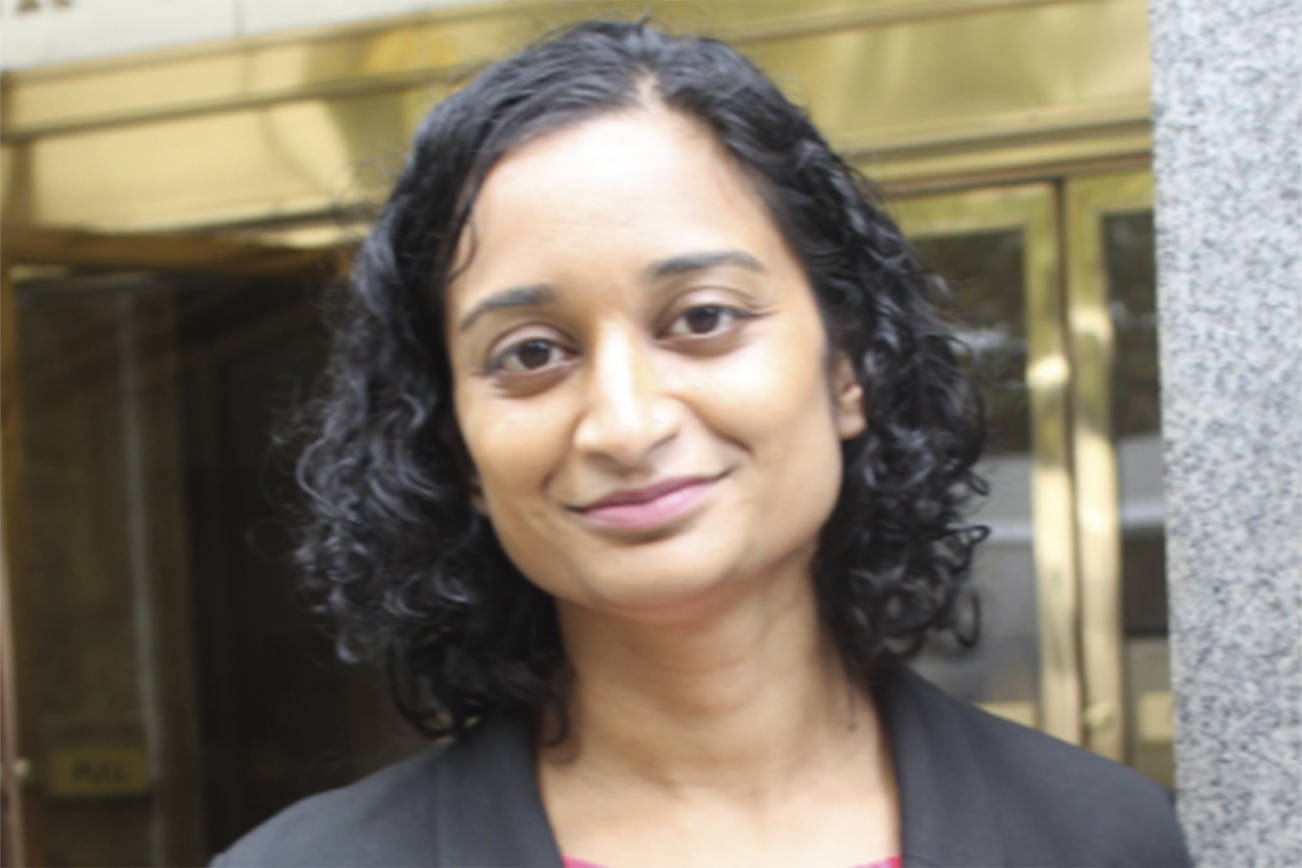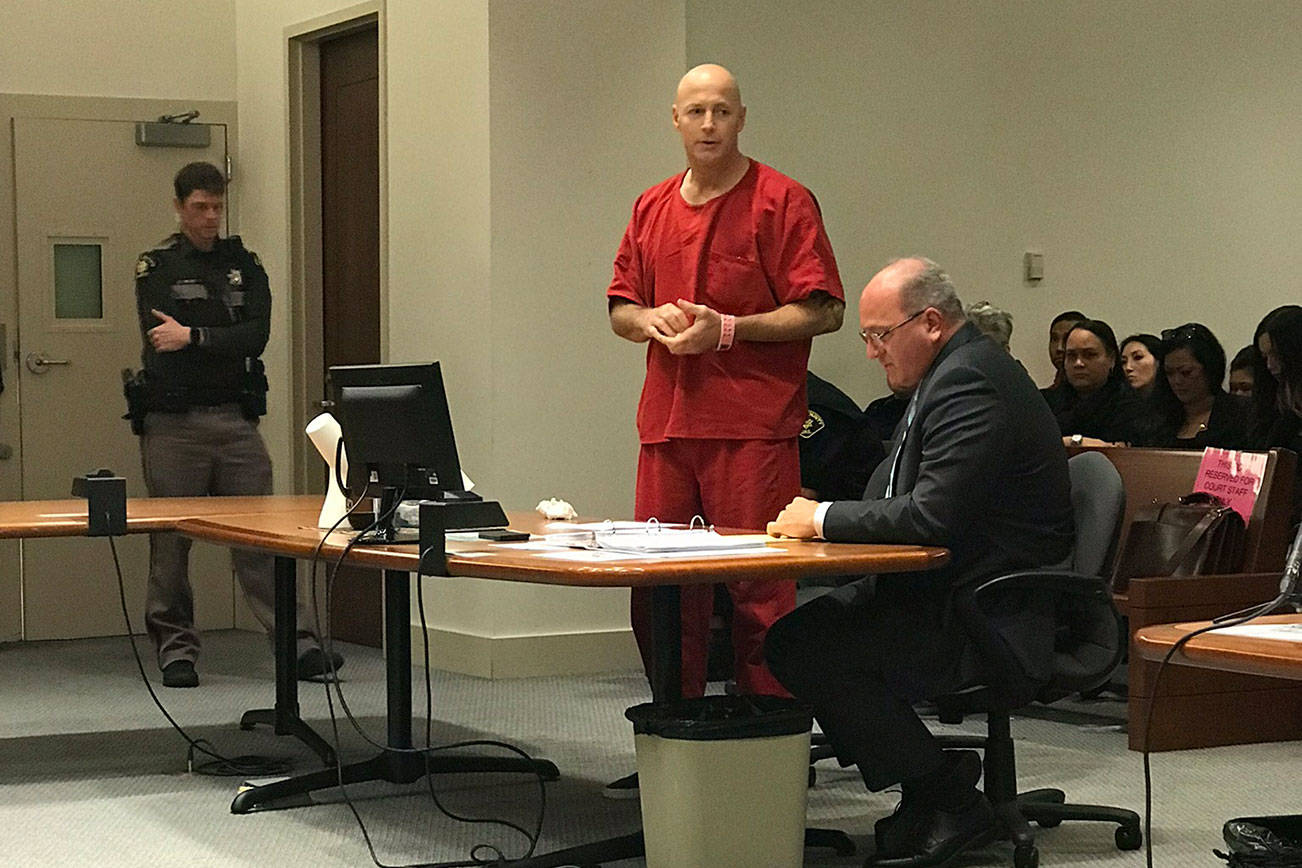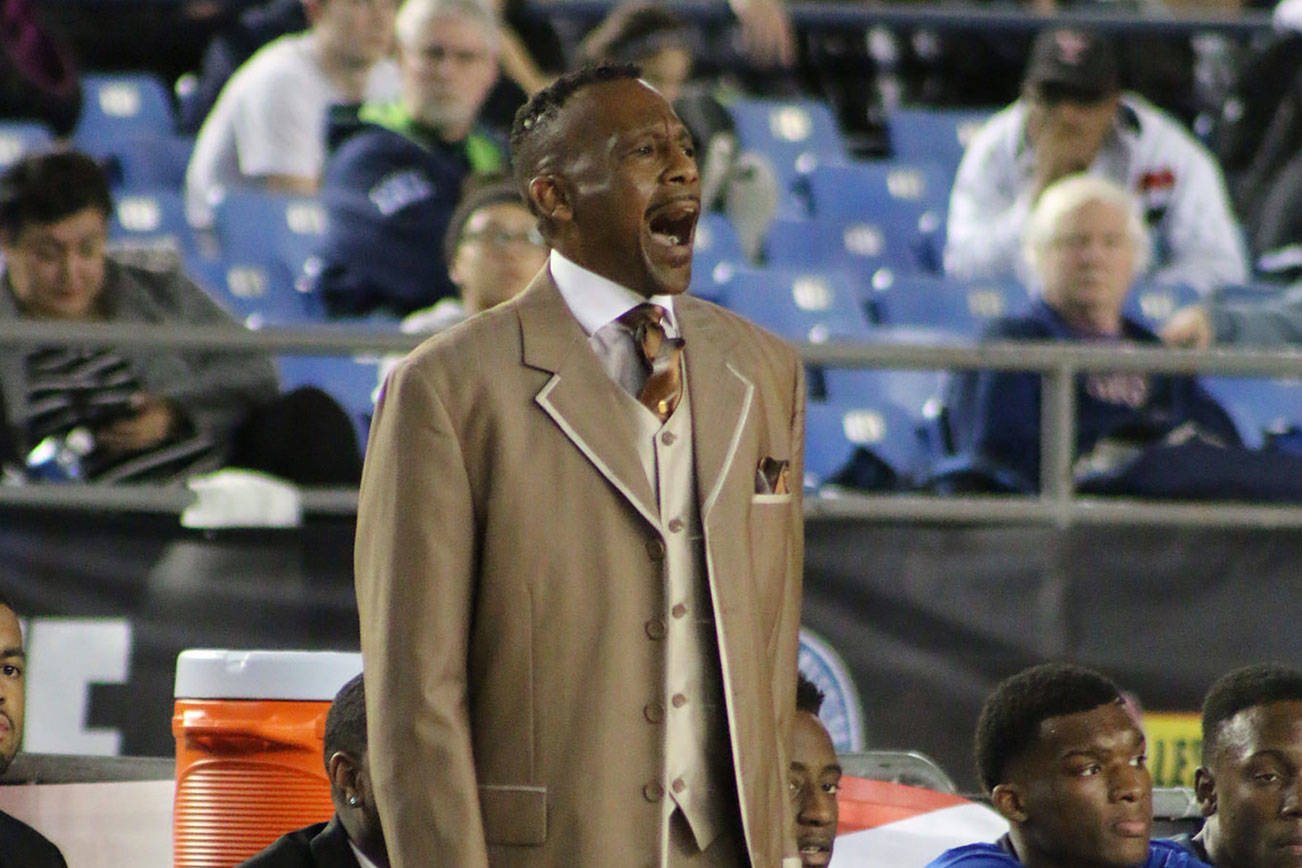Former U.S. attorney for the Western District of Washington Jenny Durkan officially threw her hat into the Seattle political ring by announcing her candidacy for mayor at a cramped room on the 8th floor of the looming Pacific Medical tower on Beacon Hill this morning.
Flanked by councilmember Sally Bagshaw (District 7–Queen Anne), former councilmember Tom Rasmussen, former Washington state governor Christine Gregoire, her daughter and Seattle Port Commissioner Courtney Gregoire, King County Councilmember Joe McDermott, and others, Durkan pitched herself as an experienced and mainstream progressive candidate who will build on the legacy of Mayor Ed Murray and tackle the city’s most pressing issues; mainly housing and homelessness.
“We are the city that is inventing the future. Today, Seattle has shiny new towers and is the innovative economy,” she said. “But we’re also a city that is caught in shifting times. In too many ways, for too many people, our incredible successes are also creating two Seattles. Too many people are getting locked out. They cannot keep up with rising prices.
“In the shadow of those shiny new buildings, too many people are living in tents, in cars, and on the streets,” she added.
Durkan’s announcement comes three days after Murray announced he would not run for re-election. She will likely pursue the same center-left constituency that Murray rode to victory in 2013, and on Friday she hit many of the same notes Murray did then, framing herself as a pragmatic leader who can get things done.
“I’m a leader, I’m a proven leader, and my style for decades has been dive-in on the toughest problems, roll up your sleeves, bring people together, listen to everyone, but then make decisions and make solutions,” she said.
Well connected within the Democratic party, Durkan, has worked on a variety of issues as a private lawyer and as a former U.S. attorney. As U.S. attorney, she prosecuted hackers accused of cybercrime and May Day anarchists, and cracked down on illegal medical marijuana dispensaries. In the private sector, she once represented the global soccer organization FIFA amidst a corruption scandal, and she represented the state Democratic party during the narrow 2004 gubernatorial election.
Durkan also played up her Seattle roots and her place as the first openly gay U.S. attorney, going on to tout her role in requesting the 2011 U.S. Justice Department consent decree on the Seattle Police Department. (Durkan reportedly had a strained relationship with the Community Police Commission, which was involved in the consent decree reform process, during her tenure.) “I signed the original order granting the consent decree. And, as your mayor, I am looking forward to signing the order that takes it away and says that we don’t need it anymore,” she said to applause from supporters.
On homelessness, Durkan was somewhat vague. She echoed the rhetoric of Mayor Murray by saying that homeless populations must be treated with “respect, dignity, and compassion,” and that the root causes of homelessness are complex. She said that the city’s current approach is “not working like it needs to” and that the city has “not moved enough people out of tents and off the streets into homes.”
But Durkan was clear about her belief that mental illness and addiction are the major root of homelessness. “If we don’t address that, we will never come close to solving our homeless problem,” to which councilmember Bagshaw, standing just to her left, quietly said “well done.”
When asked by a reporter if she supports Murray’s current policy of sweeping unsanctioned homeless encampments, Durkan deflected, saying that “we should not think of homelessness as a monolithic issue that we can solve with one solution.”
She said that, as mayor, she would pursue public-private partnerships and that she would allocate more resources to mental health and addiction treatment services.
On safe consumption sites—another subject brought up by the press—Durkan gave an ambiguous answer, saying that she looks forward to talking with local leaders about the proposal. She said that while “we have to have a place where people can go,” Seattle also “can’t fool ourselves and call them ‘safe’ sites, because what we really need to do is to make sure that people have health care and services to cure their addictions as well.”
“I want to make sure that people don’t die on the streets, but we also have to get them the treatment and then after the treatment, jobs, and things like that,” she added.
Durkan also praised Murray’s housing policy: “Because of Mayor Murray’s leadership on HALA, our building boom will result in more affordable housing and millions of dollars for exploring affordable housing opportunities. As your mayor, I will promise you that we will use that money wisely and that we will be accountable for it.”
She added that, as mayor, she would lobby the state legislature to provide incentives for landlords to provide affordable apartments and give elderly homeowners more relief from property taxes.
On the recent push in City Hall to establish a local income tax, Durkan said that while she wants to work with the City Council on their ordinance, she is skeptical of its practically in the face of a likely legal challenge.
Durkan also said that she would protect small businesses and prioritize providing basic city services, such as providing power, plowing snow, and ensuring that the Seattle police and fire departments are adequately staffed to reduce wait times on 911 calls.
Channeling Murray, Durkan made sure to declare her opposition to the Trump administration and reassure liberal Seattle voters that she will fight to continue Seattle’s status as a sanctuary city for undocumented immigrants. “I want my kids to know, I want everyone out there to know, that Donald Trump’s vision for America is not my vision for America,” she said. “I can promise you, neither Donald Trump, nor his immigration authorities, or Jeff Sessions, is going to tell us how to run our city.”
“In Seattle, we will protect and welcome immigrants from every country and of every faith,” she added.
Durkan ended the press conference by explaining why she held the event in the Pacific Medical tower, noting that her father, a World War II veteran, spent months there recovering from injuries he suffered at the end of the war.
Durkan is one of three candidates to join the mayor’s race this week. Sen. Bob Hasegawa announced on Monday, and Rep. Jessyn Farrell threw her hat in the ring this morning. Also running are former Mayor Mike McGinn, city planner Cary Moon, and social justice activist Nikkita Oliver.
jkelety@seattleweekly.com








